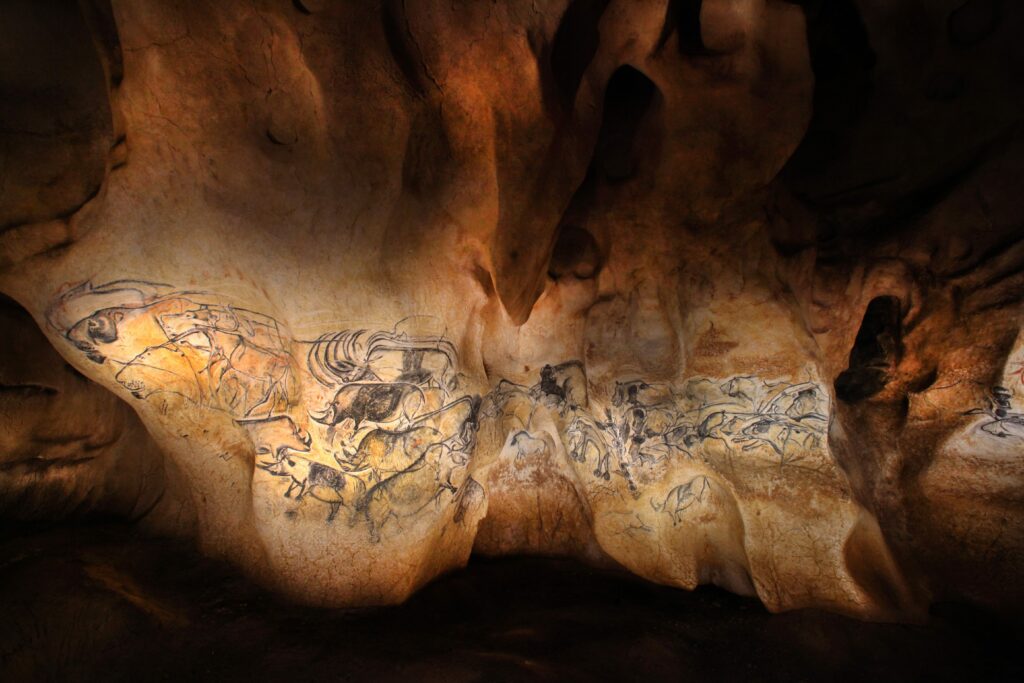The quest for the law of history. The five first millenia.
The quest for the Law of History started with the advent of historical narrative, when human groups became large and complex enough to prompt the creation and dissemination of narratives about the foundation and life of these groups, events that, real or more likely imagined, had taken place long before anyone present was alive.
From the start, History seemed to happen independently from anyone’s will. People had to do with the course of history. The boldest ones wanted to alter it, but even they knew better. Success would be a kind of anomaly, an unprecedented deed. Unsurprisingly, such fantasies generated as much fiction as high deeds.
Maybe it started multiple times, independently from one another, as early cultures and civilization rose and fall. There was no written record, at least none that modern archaeologists recovered and recognized. It is likely that, long before writing, that is abstract writing, with symbols, such as we practice it, some of scenes painted on caves actually illustrated and supported such narratives. Maybe the structure of these narratives even survives in contemporary tales and myths.

Only with the advent of decipherable writing, around 3000 BCE, in Sumer, Elam and Egypt, can we recognize the distinct development of technologies designed to identify the Law of History and predict the future. These events were contemporary with the writing of the first complex, recognisable historical accounts, and also with the oldest surviving grand narratives of fiction.
These early civilizations reveal a conception proper to that of complex and already hierarchized societies. They thought of the course of earthly events, especially those affecting the most prestigious and powerful communities, city-states and empires, as reflected in the movements of heavenly bodies, as if there was a natural connection between sky and earth. Indeed early records of the positions of stars and planets reveal a high level of expertise in observation and modelisation of celestial movements. A specialised and likely selective group had already produced an ample and tested body of knowledge.
The link between earth and sky were the sovereigns and conquerors who claimed an intimate connexion to the gods who lived in the skies. Sun, Moon, planets and stars were all manifestations of divine will, as were winds and thunderstorms. Therefore, success or failure in government and war was tightly linked to fluxes of divine might, which were directly reflected in heavenly movements. It was highly recommended to enquire about the will of the gods before attempting major moves. Conversely, it was highly imprudent to make believe one did not take divine forces into account when one claimed to be one of them.

ChoghaZanbil Ziggurat, Khuzestan Province, Iran © Sam Moghadam Khamseh
It is easy to classify as magic thinking this line of reasoning that connects every part of the sensible world or, rather, that does not feel the need to distinguish earth and sky, intimate thoughts and global forces. In fact, as we shall see, distinguishing one from another can only be the result of a long experience and of a stubborn quest for more efficient ways. As long as the sovereign does not face competition from more advanced civilizations, they do not feel the need for more advanced thinking either. On the contrary, it was much more satisfactory to be connected to every dimension of the world, to be at the centre of everything.
The endurance and longevity of these beliefs certainly testifies of their attractiveness. In fact, that line of reasoning is still quite active nowadays, except that it is being distinguished from astronomy and named astrology. Until the eighteenth century, no sovereign had given up on it, and most of modern astronomy was crafted by people, like Brahe or Kepler, who competed for envied places of official astronomers, and who therefore worked as councillors to the princes in whose employment they were. Kepler was consulted by the German Emperor upon starting the military operations that were to degenerate into the Thirty-Year’s war. The astronomer dutifully obliged his emperor, although he privately thought of his own prophesies as baseless.
The decisive movement that ushered in a different line of thinking were the years 1687-1689 and the dual works of Newton and Locke. Almost at the same time, both Englishmen contributed decisive works, the first one by doing away with the notion that the skies could harbour divine entities, and the second by proposing a foundation to understand human affairs as an independent sphere of action, one that could not possibly depend on planetary movements.
Newton, completing the works of Copernicus, Kepler and Galilee, proposed a universal law of gravitation to explain the movements of objects on Earth as well as the movements of planets. Since the skies were thus demonstrably subjected to the same laws as the objects down on Earth, they could not reflect the turpitudes of divine forces.
Locke proposed the theory that human minds were not programmed by divine interventions, but that the ideas they entertained were solely the result of life experience and education. Thus, he opened the possibility to study the development of human thoughts and activities independently from theology or even of natural science. From that point on, the quest for the Law of History was tied with the research of the universal logic of the human mind.
Learn more:
About the works and discoveries of Tycho Brahe and Johannes Kepler